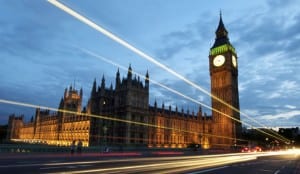 Yesterday, as the Liberal Democrat leader Nick Clegg brought the curtain down on the end of this year’s annual political party conference season, all of us still looking for pointers as to the likely winner (or winning combination) of next May’s General Election, were left scratching our heads and trying to make sense of the myriad of podium speeches, media briefings and opinion polls we have digested since the beginning of September.
Yesterday, as the Liberal Democrat leader Nick Clegg brought the curtain down on the end of this year’s annual political party conference season, all of us still looking for pointers as to the likely winner (or winning combination) of next May’s General Election, were left scratching our heads and trying to make sense of the myriad of podium speeches, media briefings and opinion polls we have digested since the beginning of September.
The conferences themselves are soon forgotten with opinion polls providing the real only lasting legacy. Each party leader’s speech is scrutinised for vision, clarity, hopes and fears, but given the aspirational need to appeal to the party faithful first and foremost, pledges are rarely believed, and with manifestos being drafted early in the New Year are often jettisoned by the time the campaign begins.
There were the inevitable blips. The Labour leader, Ed Miliband was heavily criticised for forgetting to address the deficit or immigration. Two tough but core political issues, which however uncomfortable, any party seeking election is expected to address. The Conservative leader and Prime Minister David Cameron enjoyed probably his best speech in recent years and seemingly quashed dissent in his party (at least for moment). However other party leaders were quick to question how he intended to fund an increase in the 40p income tax rate threshold. In his conference speech, Nick Clegg made every effort to re-establish the Liberal Democrats as the insurgent force among the main parties by championing the improvement of mental healthcare as his party’s main focus going into the election campaign.
Indeed, party conference season used to be a pretty straight forward affair focused on the three main Westminster parties, but it is changing. The Greens would argue that’s an unfair assessment, since the former party leader Caroline Lucas was elected to Parliament in 2010, they have enjoyed a spike in media attention, but it has been short lived. As we all know, the current bête noire for the political class remains Ukip. This seemingly unrestrained force in British politics salivates at the prospect of taking on the ‘established’ political parties and has ripped up the rulebook when it comes to electoral forecasting.
Seasoned commentators and pollsters have long viewed Ukip as a real threat to the Conservatives. Picking off centre-right supporters, appealing to their fears and concerns around immigration and the perceived constant meddling from the European Union bureaucracy in British policy. What has changed since the end of August has been defections. Former Conservative MPs Douglas Carswell and Mark Reckless both stunned their constituency associations (albeit probably not their party leadership) when they resigned the whip and declared their intention to stand down from parliament and trigger bi-elections. As voters in Clacton prepare to go to the polls today, Douglas Carswell is hot favourite to regain his seat and become the first Ukip Member of Parliament. The picture looks a little less rosy for Mark Reckless with the bookmakers forecasting the Conservatives to retain the constituency of Rochester & Strood on 6 November.
While the re-election of Carswell is expected, it would be a big surprise if Reckless overturns the odds, but either way this is a predictable tug of war between the interests of the centre-right. Where electoral politics becomes really interesting is the potential impact of a Ukip victory in the Labour held Heywood & Middleton by-election which is also taking place today.
This by-election triggered by the death of former MP, Jim Dobbin, would be a spectacular coup for Ukip. Labour should be able to draw upon a safe cushion of a 6,000 majority from the last election, but that’s falling into the trap of following conventional political forecasting. These are extraordinary times. The Scottish Referendum has fired up disenchantment with all main political parties and with the Labour Party leader Ed Miliband struggling to convey a clear narrative and vision in what his party would bring to government, it is possible, even if unlikely, that Ukip could spring a genuine shock and steal away a seat from Labour.
As of today, all the main opinion polls remain inside the three per cent margin of error. Party conference season hasn’t made the outcome of next year’s election any clearer at all. In fact the results of today’s by-elections probably won’t tell us anymore than we know already. The reality is we are all in the dark. Seasoned commentators to first time voters. The bookmakers keep telling us that Labour will be returned as the party with the most seats, but that it probably won’t be enough to form a government alone. They may be right, but hold on because it’s going to be a white knuckle ride between now and 7 May 2015.
What keeps it all interesting is anything can happen between now and May. Spare a thought for those party leaders, whether you like them or not. They are walking an ‘interview’ tightrope for your vote over the next 8 months and there’s no margin for error.


